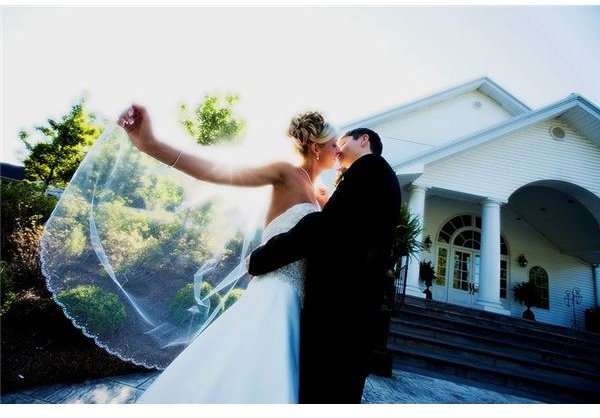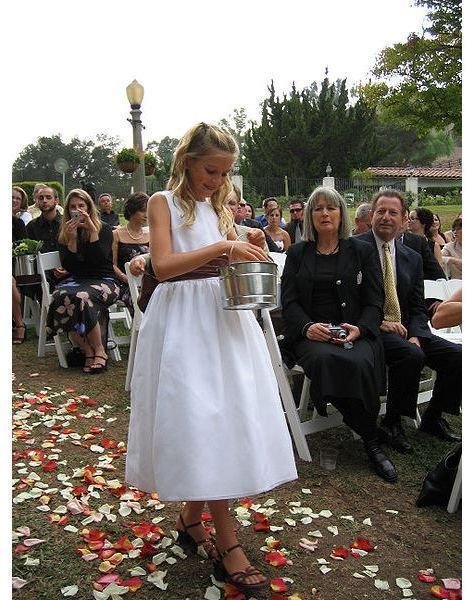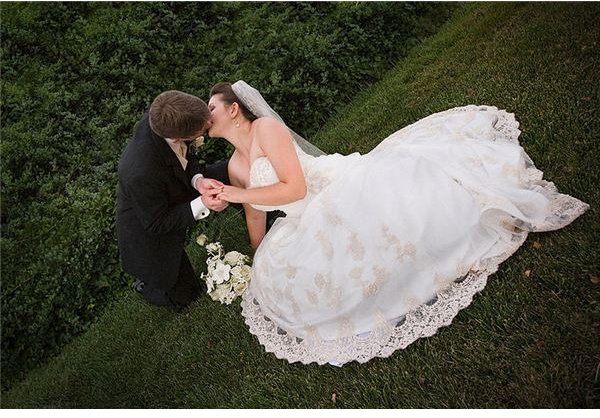What's the Wedding Etiquette for Reception Invitations? Tips for Handling Invitations
If you’ve never had to worry about etiquette for wedding invitations before, the whole situation can be overwhelming. How many should you send out? How long should you give them to RSVP? How do you even word a wedding invitation anyway?! No worries, this article will help you sort out common problems when it comes to wedding invitations.
Announcements vs. Invitations
What’s the difference between an invitation and an announcement? Simple! A wedding/reception invitation is simply that, an invitation for a guest to attend your wedding and reception. An announcement basically just lets people know that you have been married. Generally, announcements are sent afterward. Invitations are sent out to close family and friends and others you would like to attend, while announcements simply tell others that you’ve already held the ceremony. They’re generally a nice gesture, but often people would rather be invited, even if they don’t plan on attending. Just use your best judgment when sending out either.
How Do I Figure Out Who to Invite?

When you first plan your wedding, you’ve probably already got a set amount of people in your mind you want to invite. And chances are, whatever you’re thinking isn’t right. Either you are going to want to hold a small intimate ceremony and worry later on about people being offended that you didn’t invite them to your wedding and reception, or you’re going to want to invite absolutely everybody you know, and then you’ll hit a budget wall that could make that hard to do.
First thing’s first, you should probably decide what kind of reception you’re having. Is it a full meal and open bar? Is it a cocktail reception where a small amount of guests rub elbows with each other in the late evening? How much will your cake cost? Are you renting somewhere or are you holding it at someones house? After you plan the type of reception you would like, get some references for it and then set a budget. Now that you’ve got somewhere to work from, you can begin making a list.
Of course you want to invite parents, grandparents, siblings, and friends. Slowly work your way out from there to extended family, friends and coworkers. Once you hit your budget cap, go back and revise your list and make any changes that you need to. This method will yield better results than the old “Write down everyone you know and sort through them later” method.
How Do I Word a Wedding Invitation?
There’s a certain etiquette for the way the invitations are written out. Traditionally, whoever is paying for (or “hosting”) the wedding will be the ones requesting the presence of the guests. Tradition dictates that this is the bride’s parents, but that isn’t always the case. If both sets of parents are hosting, be sure to include the groom’s parents as well. If you are hosting your own wedding, go ahead and just put the bride and groom’s name on it. Classically a wedding invitation is written out as this:
[Bride’s Mother’s Name]
and
[Bride’s Father’s Name]
Request the honor of your presence at the
Wedding Ceremony of
[Bride’s name]
and
[Groom’s name]
on [date, time]
at [location.]
Reception will be held at [location]
From [start time] to [end time]
[Special notes, if any, go here]
What Should I Include in My Invitation?
Aside from the invitation itself, you should include a self-addressed envelope with a card containing an RSVP form. This generally includes the number of guests the person is going to bring along (and any limitation you have on number of guests) and if you’re having the meal catered, the choice of food the guests get (if any). Proper etiquette also dictates that you really should include a stamp as well.
When Should I Send Out Wedding Invitations? When Do I Ask Them to RSVP?

There’s a lot of grey area when it comes to sending out wedding and reception invitations. Some people agree that as little as three weeks is okay, while others state that a time frame of at least three or four months is required. However, a lot of it depends on how many people you are inviting, how far the majority of them have to travel, and how forgetful your family and friends tend to be.
Ideally, six to eight weeks in advance is a good time frame. It’s far enough in advance that people can clear their schedules and make arrangements if they’re coming from out of town, but generally not so far that they can easily forget about it. Setting an “RSVP By:” date is also important. You should try to set it about three weeks in advance. This will give you a head count of how many people to expect, which is helpful information that you or caterer will need to know in regards to food, as well as give you the amount of tables and chairs you’ll need to set up!
Image Credits
https://commons.wikimedia.org/wiki/File:Bride-groom-kiss.jpg
https://commons.wikimedia.org/wiki/File:Alabamawedding.jpg
https://commons.wikimedia.org/wiki/File:Flower_girl_%28wedding%29.jpg
